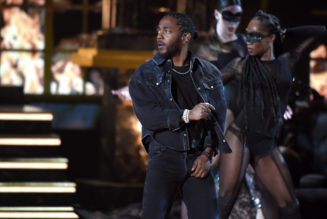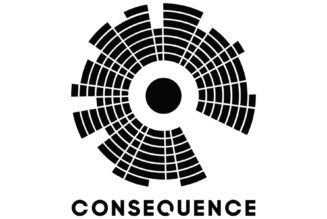
If you’re going to make a music biopic — and with new dramatic takes on the lives of Bob Dylan, Amy Winehouse, Bob Marley and Michael Jackson on the way, it appears everyone is — you’d better secure the music rights. Making a movie purporting to tell the story of a pop music legend without first clearing rights to use the pop music that made them legendary is a recipe for box office disaster.
Remember Stardust, Gabriel Range’s 2020 David Bowie biopic starring Johnny Flynn, shot without any music from Bowie? Or Jimi: All Is By My Side (2013) directed by John Ridley with André 3000 as Jimi Hendrix playing none of his original songs? How about England Is Mine, Mark Gill’s unauthorized Morrissey biopic with Jack Lowden and Jodie Comer? Probably not. Without the sing-alone tunes, those films sank without a trace.
The blockbuster pop biopics — Bohemian Rhapsody, Rocketman, Straight Outta Compton, Baz Luhrmann’s Elvis — were all made with the support of the artists or their estates and came packed with a jukebox full of back-catalog hits.
The film, shot mostly in English — the common language of Milli Vanilli members Fab Morvan, who is French, and German Rob Pilatus — hits German theaters on Dec. 21 and is being sold worldwide at AFM by Voltage Pictures.
Tijan Njie and Elan Ben Ali respectively star as Milli Vanilli frontmen Pilatus and Morvan. Army of Thieves star Matthias Schweighöfer plays Frank Farian, the music industry Svengali who packaged and produced the band. Simon Verhoeven (Welcome to Germany, Men in the City) directed from his own script.
Milli Vanilli became chart-topping global stars during the 1980s, scoring three No. 1 hits in the U.S. and winning a Grammy for best new artist in 1990. But the duo had a dirty secret: They were a fake band. Pilatus and Morvan never did their own singing, instead lip-syncing to the voices of two other artists.
When the truth came out, the group plunged from superstardom and became a punchline. After a failed comeback attempt, Pilatus’ life spiraled out of control. In 1998, he was found dead in a Frankfurt hotel room of a suspected alcohol and prescription drug overdose.
“I think it’s a unique story of the rise and fall of a global pop band,” says Berg, “but it was essential for us to also capture the feel and the joy of the music of that time. And for that, we needed the original songs.”
The rights to Milli Vanilli’s music are scattered among several parties. Berg, whose production credits include the hit Netflix series Dark and the Oscar-winning The Lives of Others, secured rights to the film’s title track (also the name of the band’s breakthrough 1989 album) directly from R&B music producer and performer Kevin Liles, who composed the original version of “Girl You Know It’s True” with his Baltimore DJ crew Numarx in 1986. He brought on Jasmin Davis, daughter of the late singer John Davis, and Brad Howell — the two were the true voices of Milli Vanilli — as associate producers and development consultants. Several of the band’s songs were available to license through Sony Music.
“But then there were the songs that Frank [Farian] produced, and he had certain rights, and rights of refusal,” says Berg. “Sorting that out was a bit more complicated.”
Berg flew back and forth to Miami to try and convince the now 82-year-old Farian — “a very headstrong character, who has a very specific take on the history of Milli Vanilli” — to sign over his rights. “He kept us on edge. I was at the airport ready to fly back and 30 minutes before my plane took off, Farian called and we did the deal.”
Having original music rights for a pop biopic definitely boosts a project’s profile — in addition to the built-in audience of the artists’ fans, the film’s soundtrack, with all those original tracks, can be a lucrative revenue stream. (Sony Music drops the Girl You Know Its True soundtrack on Nov. 24.)
But to secure the approval of the original artists, producers are often required to make edits to ensure an artists-approved, that is sanitized, version of their life story. Bohemian Rhapsody was criticized for its PG treatment of Queen frontman Freddy Mercury’s sex life. Baz Luhrmann’s Elvis skirted around the King of Rock and Roll’s treatment, some would say abuse, of his wife, Priscilla Presley (the subject of Sofia Coppola’s Priscilla, which was made without original Elvis songs.)
But, despite Farian’s involvement, Berg says Girl You Know It’s True is “not the Frank Farian version” of the story. “We wanted to focus on Rob and Fab, the two faces of Milli Vanilli. Frank Farian is an important third figure and he has his own take on what happened, but we wanted to stay independent, to be able to tell this story from many different perspectives.”
Girl You Know It’s True has made it over the line ahead of more prominent U.S. attempts to tell the Milli Vanilli story, including a long-gestating attempt by disgraced director/producer Brett Ratner. The Rush Hour and Tower Heist filmmaker had planned the music biopic as his return to filmmaking after facing sexual misconduct and harassment claims by multiple women including Olivia Munn and Natasha Henstridge. (Ratner has denied the claims.) In early 2021, Millennium Media came on board to co-produce the project and handle sales but quickly pulled out. The project’s current status is unknown. Fabrice Morvan had sold the rights to his life story to Ratner, so he could not be involved in Verhoeven’s film.
Girl You Know It’s True rolls out in the wake of Luke Korem’s well-received documentary Milli Vanilli, which premiered at Tribeca this year and bowed on Paramount+ last month. Berg and Verhoeven were associative producers on the doc, which was produced by MRC Non-Fiction. (The Hollywood Reporter is part of PMRC holdings, a joint venture between PMC and MRC).
“We think the film and the documentary can exist side by side, they complement each other,” says Berg. “Both tell different sides of this incredibly, fascinating story of ’80s music history.”









